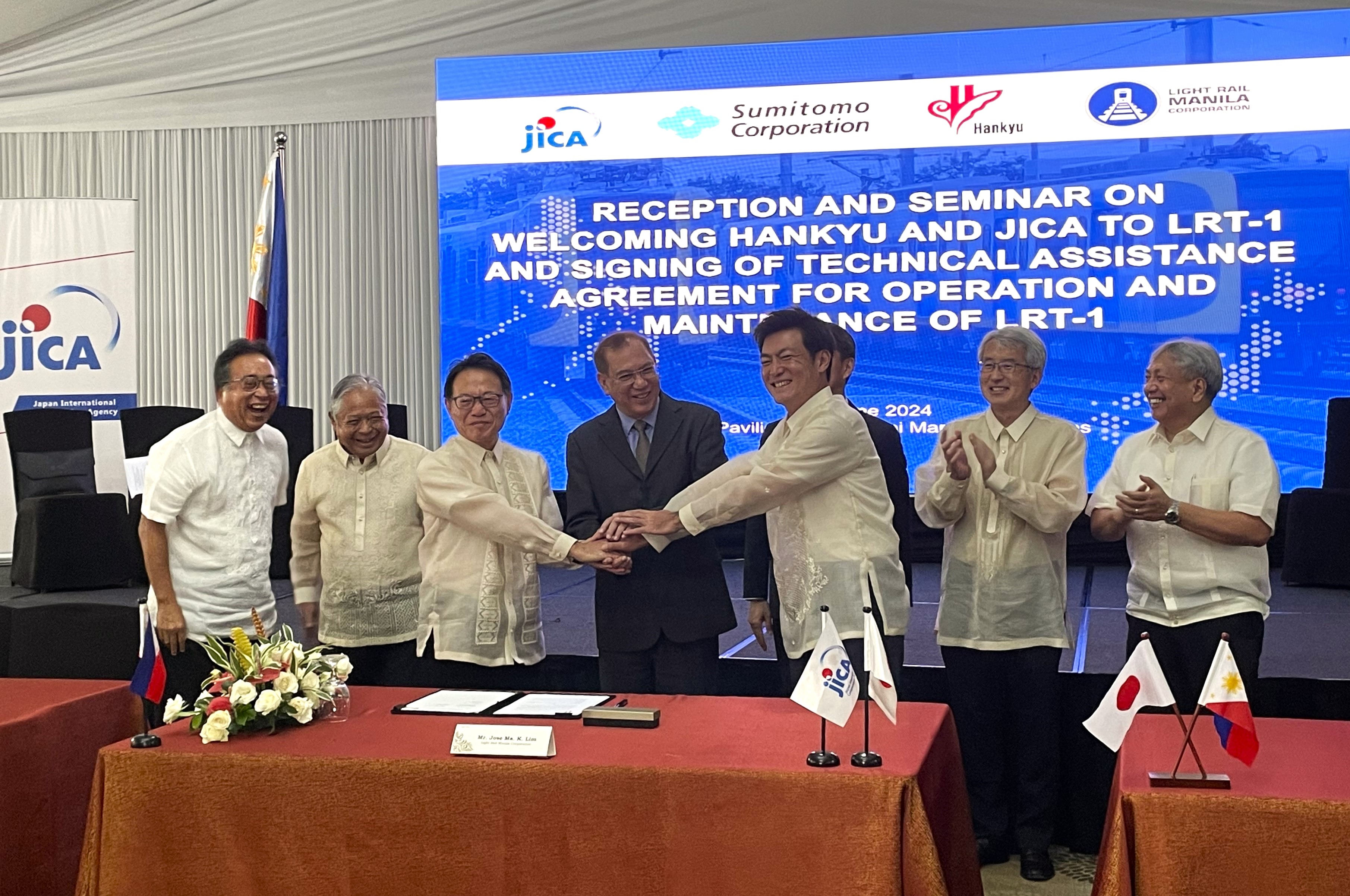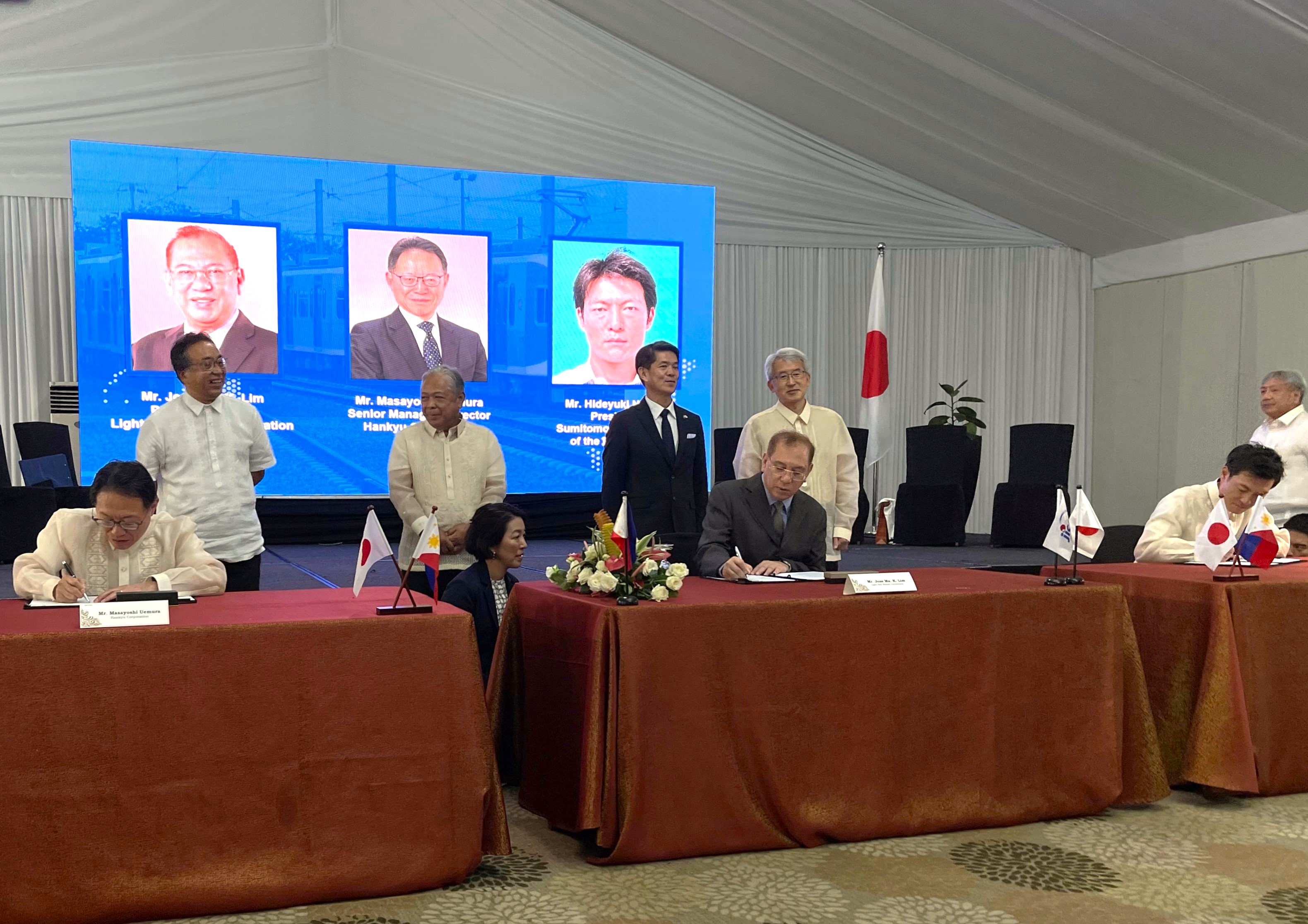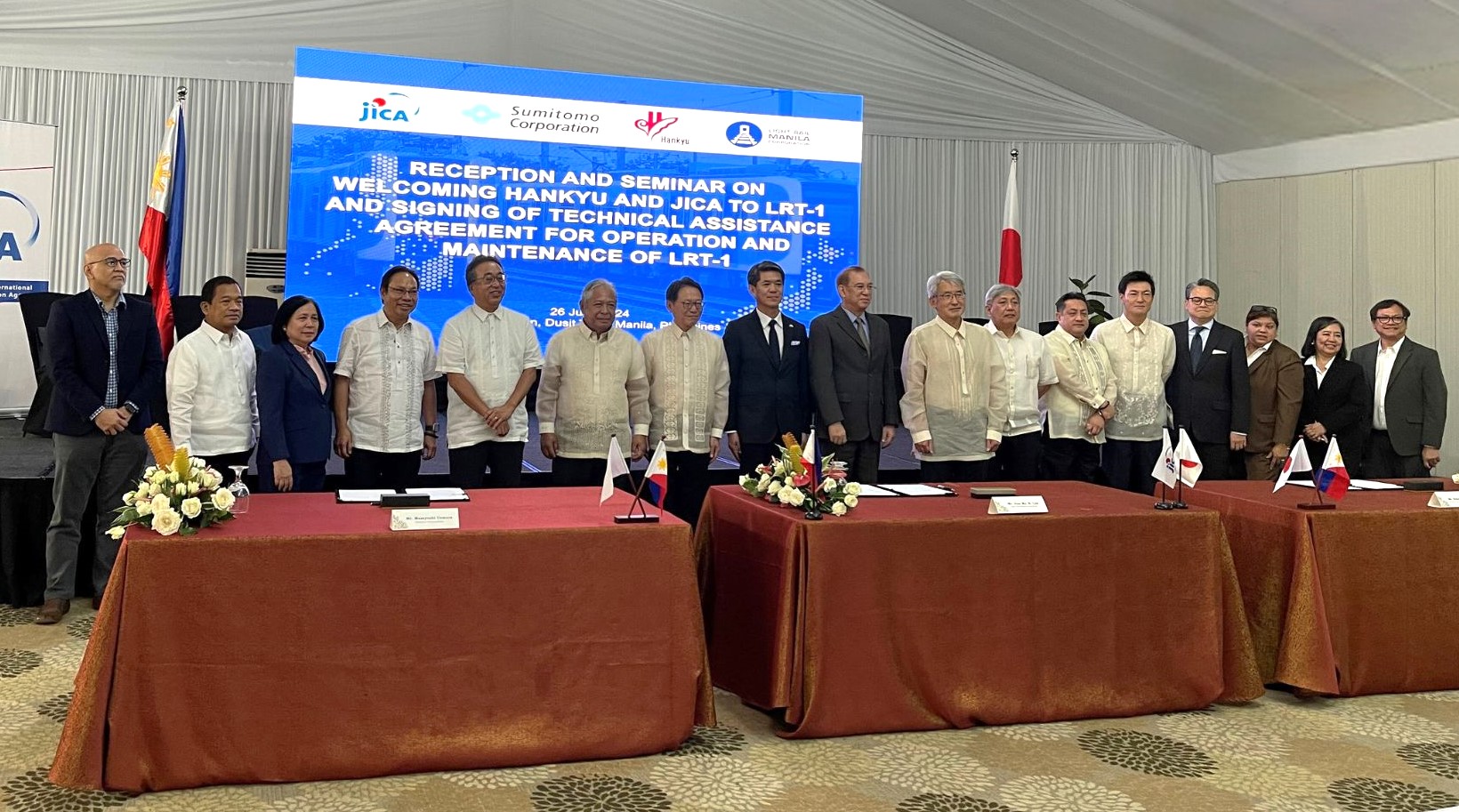JICA seminar for equity investment in LRT1 O&M forges an epoch-making partnership among Japan-Philippines railway organizations in advancing PH railway network
2024.06.26
The Japan International Cooperation Agency (JICA) hosted a seminar in Makati City, Metro Manila, on June 26, 2024, to showcase its strong commitment in the Philippine railway sector, together with Japanese companies, Sumitomo Corporation (Sumitomo) and Hankyu Corporation (Hankyu) to invest in the Light Rail Transit Line 1 (LRT1) Operation and Maintenance (O&M).
JICA, Hankyu, a Japanese Railway Operator, and Sumitomo agreed to collaborate in O&M of LRT1. The three parties agreed to transfer part of the shares held by Sumitomo in Light Rail Manila Corporation (LRMC), to JICA and Hankyu. LRMC operates and maintains LRT1 since 2015.
This JICA’s first equity investment in the overseas railway sector, called the "LRT1 Operation & Maintenance Improvement Project," aims to support the Philippine government and private sector’s efforts to ease traffic woes, improve quality of life, boost economy and investment, create job opportunities, reduce greenhouse gas emissions, and address climate change issues, among others.
JICA Senior Vice President HATAEDA Mikio opened the event with his speech, “By this direct involvement in the O&M of railway, which was the last missing piece of our cooperation in the railway sector, now, JICA comprehensively covers the entire aspects of railway development, from master planning to construction and up to O&M, which gives ‘Full Speed Ahead’ support to realize safe, reliable, and comfortable railway for Filipino people.”
In addition, JICA Chief Representative SAKAMOTO Takema emphasized in his closing remarks, “Development of mass transport system is definitely crucial and the only solution to serious traffic congestion in Metro Manila. JICA’s new approach of this equity investment is JICA’s direct commitment for better O&M with responsibility and could contribute to encouraging Hankyu, who is one of the most experienced railway operator in Japan, to participate for more innovation and modernization of Philippines’ railway with Hankyu’s knowhow and skills of passenger-oriented approach and land value capturing, Transit-Oriented Development (TOD) and area development, ultimately contributing to mitigating traffic congestion of Metro Manila, climate change and better commuting experience for Filipino people, etc.” SAKAMOTO added, “This is the critical first step for the new initiative of the 'Luzon Economic Corridor' which top leaders from the US, Japan, and the Philippines advocated at the trilateral summit meeting held at the White House in April.”
Subsequently, the two Japanese companies and the LRMC have signed a Memorandum of Understanding (MOU) for Technical Assistance Agreement. Through this MOU, LRMC will receive technical assistance by leveraging Hankyu’s railway operations expertise on areas such as O&M, non-farebox revenue, land value capturing, and urban development planning.
The event was attended by Japanese Ambassador ENDO Kazuya, JICA Senior Vice President HATAEDA Mikio, Sumitomo Corporation of the Philippines President NISHIO Hideyuki, Hankyu Senior Managing Director UEMURA Masayoshi, Transportation Secretary Jaime J. Bautista and Undersecretary for Railway Jeremy Regino, LRMC President Jose Ma. Lim, General Manager Enrico Benipayo, and Director Alfonso Cusi, Department of Finance Undersecretary Rolando G. Tungpalan, National Economic and Development Authority Undersecretary Joseph J. Capuno, Metropolitan Manila Development Authority Undersecretary Procopio Lipana, Philippine National Railways Chairman Michael Macapagal, among others.
With rapid urbanization linked to rapid economic development and population growth, the Philippines faces congestion especially in Metro Manila. To ensure efficient and sustainable transportation for Filipinos, the Philippine government collaborates with JICA in expanding and improving public transportation networks, such as the LRT1 Cavite extension, which will open a seven-kilometer section with five new stations by the end of 2024.
JICA also supports other major railway infrastructure projects in the country such as the Metro Manila Subway, North-South Commuter Railway system, MRT-3 Rehabilitation and Maintenance, and Capacity Enhancement of LRT Line 2. In addition, Japanese experts are dispatched in the country to enhance the capacity of various Philippine agencies such as the Department of Transportation for the 30 years railway master plan for Greater Capital Region, the Philippine Railways Institute, and the Bases Conversion Development Authority for TOD.
Through these comprehensive support in the country’s railway sector, JICA aims to provide a safe, reliable, and comfortable transportation network for the Filipinos’ better life, further boost economic growth, and reduce environmental impact by encouraging public transportation usage, i.e., modal shift.



scroll